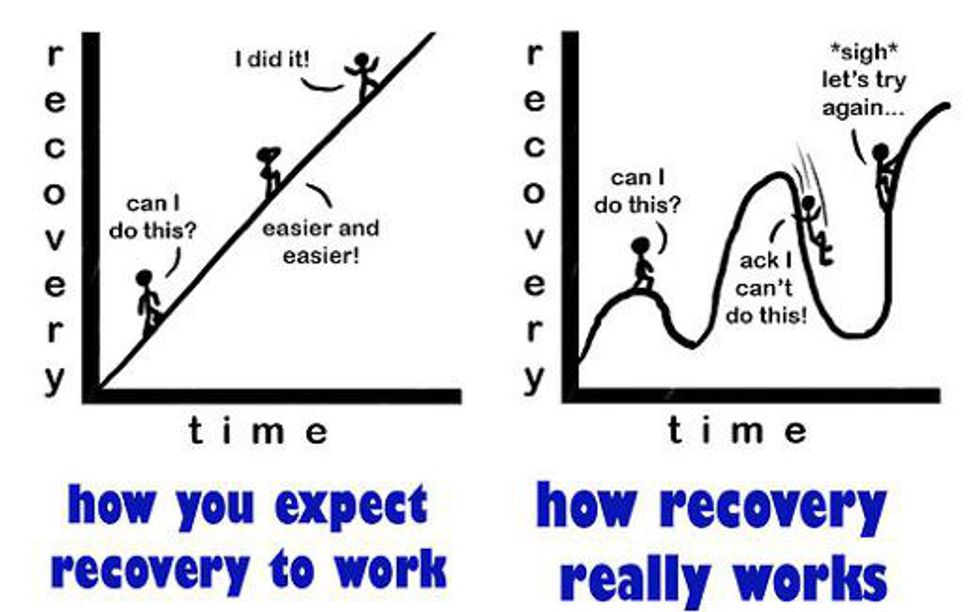During my stay in residential treatment last summer, I was aware that I wasn’t going to “come out cured.” In fact, residential treatment was just the beginning stage of recovery and going home was still the beginning of a long road to recovery.
When person completes treatment for their eating disorder, they still need room to struggle. Thinking that a person “comes out cured” after treatment can be stressful for that person. Remember that recovery is a process. People who are in recovery are not perfect. They aren’t going to get over their fear of food right away.
Recommended for you
A typical day for me involves making sure I’m getting my three meals in which are breakfast, lunch and dinner. Getting in three meals a day doesn’t seem hard, but it can be tough when you work, go to school, or even both. I’ve been through some lapses in my recovery journey, but I’ve learned to pick myself up and start new every day. Recovery has taught me that the journey is hard, but I’m also still learning to cope with emotions and body image in a positive way. I will admit I still get anxious when attending events that involve food and I still get anxious eating certain foods, but I continue to let myself to have fun and eat because that’s what I deserve and my body needs nutrients.
Balancing school and recovery can be hard for me. Back when I was at my worst, school became a distraction for from eating. When I went back to school after residential treatment last year, it was difficult to not let my eating disorder take over. I knew getting on the road to recovery would be hard because I had to use my voice and not let ED in. For those in school and in recovery, it will be hard, but learn how to use your voice is the best advice I can give you.
Eating Disorder habits do not break overnight. You have to take one day at a time even that’s easier said than done, but it’s the truth. Family and friends shouldn't expect perfection in recovery because recovery is no way perfect, which leads me to this: Everyone’s recovery is different.
I can’t stress that enough that everyone’s recovery journey will be different. Everyone moves at a different pace. My one advice to those in recovery and to those who are supporting someone in recovery is don’t compare recovery journeys.
Helping someone in recovery starts with getting educated. I can’t stress that enough. Don’t be afraid to ask questions. Just remember that when someone who is in eating disorder recovery, they are not cured. Being understanding and knowing there will be some days that will be tough or good.
In recovery, you will have your good and bad days and that’s OK. Recovery isn’t a straight line.



















